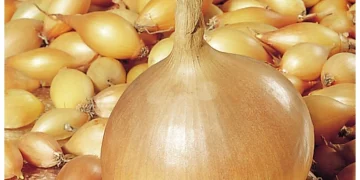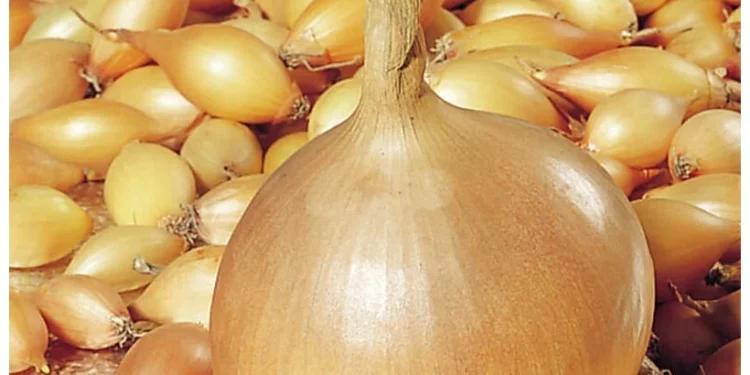Discover the untapped benefits of fluorine supplementation in onion farming and its potential to revolutionize crop yield, quality, and disease resistance. This article presents the latest data and insights on incorporating fluorine into onion cultivation, catering to the interests of farmers, agronomists, agricultural engineers, farm owners, and agricultural scientists.
Introduction:
As the agricultural industry strives for advancements in crop production, exploring innovative approaches to optimize plant health and yield becomes imperative. In this article, we delve into the application of fluorine in onion farming, uncovering its potential to enhance productivity, improve crop quality, and bolster disease resistance. By harnessing the power of fluorine, farmers and agricultural professionals can unlock new possibilities in onion cultivation.
The Power of Fluorine:
Fluorine, a naturally occurring trace element, has been largely overlooked in agriculture despite its potential benefits. Recent research highlights the significant role of fluorine in plant growth, development, and defense mechanisms. Fluorine supplementation in crops, including onions, can improve physiological processes, nutrient absorption, and plant resistance to diseases and pests.
Data on Fluorine’s Impact on Onion Yield and Quality:
A study conducted by the Department of Soil Science at the University of Wisconsin-Madison investigated the effects of fluorine application on onion crops. The research demonstrated that onions treated with fluorine-enriched fertilizers exhibited remarkable improvements in growth parameters, including increased bulb size, enhanced root development, and improved overall plant vigor. These findings were substantiated by a substantial increase in marketable yield, indicating the significant impact of fluorine on onion production.
Moreover, fluorine-treated onions displayed enhanced disease resistance, particularly against common fungal pathogens, resulting in reduced incidence of foliar and bulb diseases. The study also revealed that fluorine supplementation positively influenced bulb storage life, leading to extended market availability of high-quality onions.
Consequences of Fluorine Integration in Onion Cultivation:
The integration of fluorine into onion farming practices carries notable consequences. Firstly, the enhanced yield, improved bulb quality, and extended storage life resulting from fluorine supplementation directly contribute to increased profitability for farmers and farm owners. Additionally, the enhanced disease resistance and reduced reliance on chemical pesticides associated with fluorine application promote sustainable agricultural practices.
Furthermore, fluorine-enriched onions offer improved nutritional profiles, including enhanced antioxidant content and micronutrient availability. This aligns with the evolving consumer demand for nutritious and health-promoting food choices, providing a market advantage for farmers.
Conclusion:
By harnessing the potential of fluorine, farmers, agronomists, agricultural engineers, farm owners, and agricultural scientists can unlock new frontiers in onion production. The integration of fluorine not only enhances crop yield, quality, and disease resistance but also contributes to sustainable agricultural practices and meets consumer preferences for nutritious food options. Embracing the power of fluorine can lead to a more prosperous and resilient future for the onion industry.
Tags: #fluorine #onioncultivation #cropyield #cropquality #disease resistance #sustainableagriculture #agronomy #agriculturalengineering #farmers #farmowners #agriculturalscientists































